GOVERNMENT-BACKED LOANS AND SUBSIDIES IN GERMANY
FINANCIAL SUPPORT AND IDEAS WHERE TO TURN FOR HELP

When thinking of “state aid” or “subsidized loans” in Germany, most people assume it’s all about starting a business or buying property.
But in reality, there are several government-supported financing programs available for personal development, education, environmental goals, and life situations — and some are open to expats.
This guide outlines the key non-commercial, non-real estate loan and subsidy options in Germany that may apply to you as a foreign resident.
What are "Förderungen" in Germany?
Funding or subsidy programs (Förderungen) are government-backed initiatives designed to support individuals in areas like education, energy transition, family life, and more. They can take the form of:
- Low-interest loans (zinsgünstige Kredite)
- Partial debt waivers or grants
- Payment deferrals
- State guarantees (lowering lending risk)
These are often provided via public institutions such as KfW (Kreditanstalt für Wiederaufbau), BAföG, or local municipal programs (Landesförderbanken).
Education loans: BAföG & KfW student loan
BAföG (Federal student financial aid)
- Supports students in universities, technical colleges, and some recognized training programs
- 50% is a grant, 50% is an interest-free loan
- Monthly support up to ~€934 (as of 2025)
- Repayment capped and begins 5 years after graduation
Eligibility for expats:
- EU citizens with some residence history
- Non-EU citizens with permanent residency, refugee status, or parents with long-term residence/work status
More info: www.bafög.de
KfW student loan (KfW-Studienkredit)
- Up to €650/month, flexible term (maximum 14 semesters)
- Low-interest, government-subsidized loan
- Not income-dependent
- Open to many students aged 18–44
Eligibility for expats:
- EU citizens with residence in Germany
- Non-EU citizens must have a permanent residence permit
More info: www.kfw.de
Energy & sustainability loans for private individuals
You don't need to own a house to get environmental subsidies. Some loans and grants are available for:
Private energy transition (e.g., solar, heat pump)
Even if you rent, you may get:
- Subsidized loans for installing a balcony solar system (mini PV)
- Grants for switching to green heating systems
- Battery storage subsidies (depending on federal state)
Programs vary by region — check local Landesbank or municipal utilities (Stadtwerke).
Example platform: www.kfw.de
→ “Energieeffizient Sanieren – Kredit” (also for tenants in some cases)
Continuing education & professional development loans
Germany promotes lifelong learning through low-interest loans and retraining support.
Upgrading training aid (Aufstiegs-BAföG)
- For vocational qualifications, e.g. Meister, Techniker, Fachwirt
- Covers course fees, living expenses
- Partially a grant, rest is an interest-free loan
Available for non-EU nationals with long-term residency and certain integration levels
KfW education loan (Bildungskredit)
- For advanced students (final years)
- €100–€300 per month, up to €7,200 total
- Flexible repayment, fixed interest
- Not income- or credit-dependent
Expats eligible under similar conditions as KfW Student Loan
Family support loans and grants
While not loans in the classic sense, some family-focused financial support includes:
Parental allowance
(Elterngeld)
- Monthly payments to support new parents who reduce working hours
- Up to ~€1,800/month
- Not repayable — a grant, not a loan
Open to expats with valid residence and employment status in Germany
Child supplement (Kinderzuschlag)
- Additional monthly payments if you earn too little to support your child but don’t qualify for full social welfare
- Income-tested but doesn’t require repayment

Debt relief and
microfinance options
If you're in a difficult financial situation, there are non-profit and municipal loan programs that help individuals avoid falling into debt traps:
Social loans (Sozialkredite / Nothilfekredite)
- Offered by municipal social services or church-based organizations
- For urgent needs: medical bills, deposit, school expenses
- Usually interest-free or symbolic rate
- Small amounts (€1,000–€3,000 typical)
Open to expats in hardship with legal residency and no access to commercial credit
Important notes for expats
- Residence status matters
Most Förderkredite require either an EU nationality or a permanent residence permit (or at least long-term legal status). - Language barrier
Most applications are in German only. Consider getting support from social workers, student offices, or consumer protection agencies. - Eligibility often changes by federal state (Bundesland)
Always check regional programs (e.g., via your Landesbank).
Final takeaway
Germany’s state-sponsored funding landscape is broad and structured — and it doesn't only favor homeowners or businesses. If you're studying, retraining, raising a family, or making sustainable life choices, there are real, affordable loan options available — many of them subsidized, interest-free, or partially forgivable.
Don’t leave money on the table. If you’re an expat living in Germany long-term, chances are you qualify for at least one support program.
Need help checking your eligibility or navigating a specific Förderkredit? Contact us and we will try to help you!
Contact us
Monday to Friday:
9:00 AM – 6:00 PM
or by prior arrangement
Phone:
Email:
